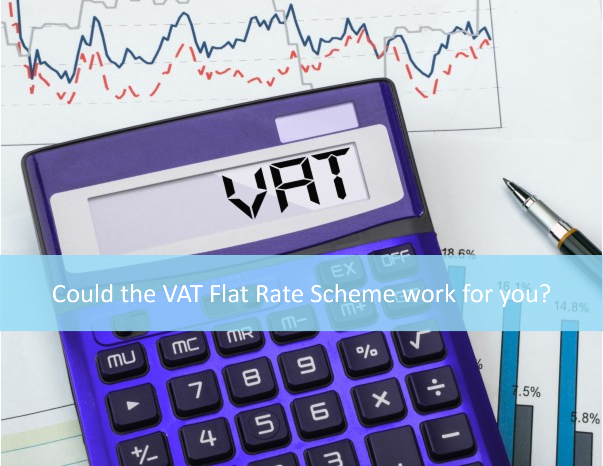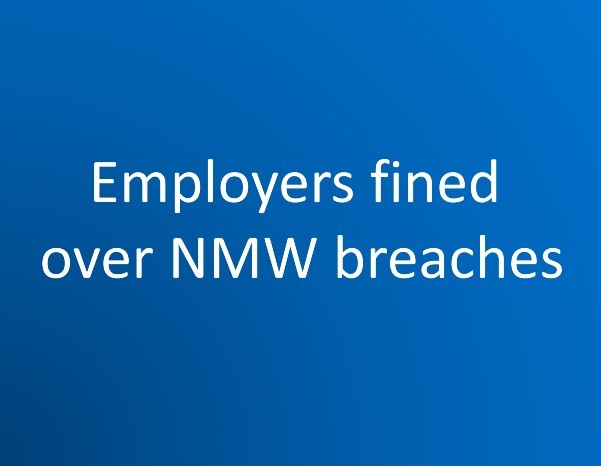.jpg)
To help you plan for the coming year we've prepared the following guide to highlight the key dates to mark on your calendar. We cover everything from income tax and national minimum wage to key price changes that may impact businesses.
January 1
Energy Price Cap
Ofgem are increasing the energy price cap from £1,717 to £1,738.
This is less severe than some of the increases seen in the previous year, but you may still be impacted by the additional costs.
Audio-Visual Expenditure Credit
Visual effects expenditure on films and high-end TV programmes becomes eligible for the expenditure credit at a rate of 39%.
January 31
Self Assessment Tax Returns
This is the final deadline for electronic submission for individual, partnership and trust self assessment tax returns for the 2023/24 tax year.
If you have not yet paid the balance of your self assessment tax bill for 2023/24 it will need to be paid by this date. The first payment on account for the 2024/25 tax year is also due.
March 2
Rail fare increases
Regulated train fares are set to increase by 4.6%. The increase will apply to season tickets covering most commuter routes, some off-peak return tickets on long distance journeys and flexible tickets for travel in and around some major cities. Train operators can set unregulated fares as they wish, but they usually increase these by a similar amount.
This is the lowest absolute increase in three years but will still represent an uptick in costs for those of us travelling to see clients and for clients who use trains frequently.
April 1
National Minimum Wage
The National Living Wage, which applies to anyone aged 21 and over, increases to £12.21. This is a 6.7% increase.
The National Minimum Wage rate paid to 18-20 year-olds will increase to £10.00, a 16.3% increase. 16-17 year olds and apprentices will receive £7.55, an 18% increase.
These are all notable increases that will affect the wage budget of businesses. Give us a call if you need help in quantifying and budgeting for the uplift in costs.
Stamp duty land tax
The government has confirmed that the temporary increase to stamp duty land tax (SDLT) free thresholds will end. The threshold for first time buyers reduces to £300,000. For everyone else the nil rate SDLT threshold reduces to £125,000.
Business rates
The standard multiplier for business rates increases to 55.5 pence. However, the small business multiplier - which applies to properties with a rateable value of less than £51,000 - remains frozen at 49.9 pence.
Fuel duty
The fuel duty freeze was due to end with prices increasing from April 1. However, it was announced during the Autumn Budget 2024 that the freeze would continue for at least another year. Good news for motorists and businesses!
Annual Tax on Enveloped Dwellings (ATED)
The ATED charges increase automatically in line with inflation. The increase is based on the Consumer Price Index (CPI) from September 2024, i.e. 1.7%.
April 6 - New tax year begins
Employers National Insurance increases
The Employers National Insurance rate increases to 15% from 13.8% for the new tax year. The Secondary Threshold (the threshold at which employer national insurance contributions begin to be paid) also reduces to £5,000 a year. Your payroll software needs to be updated to account for this.
The maximum Employment Allowance is increased from £5,000 to £10,500. In addition, the restriction that prevents employers that have paid more than £100,000 in employer’s NICs in the previous tax year from claiming has been removed. This means all eligible businesses will now be able to claim the reduction, regardless of how much employer’s NICs they paid in 2024/25.
Dividend allowance
There is no change to the dividend allowance - it stays at £500 for the tax year. However, in view of the changes to employer’s NICs and marginal relief staying in force you may need to consider what the optimum salary and dividends mix is for the 2024/25 tax year for your shareholding directors.
Capital gains tax
The rate on gains subject to business asset disposal relief and investors relief increases to 14% from 10%. The rate will increase to 18% from 6 April 2026, so if you are considering selling or retiring, you will need to factor this into their plans.
The capital gains tax rate for carried interest for both basic and higher payers is increased to 32%. The intention is for this to be brought within the Income Tax Framework from the 2026/27 tax year.
Residence based regime for foreign income and gains
The concept of domicile has ended in tax regulations and a new residence-based regime begins. A Temporary Repatriation Facility (TRF) will be available for 3 years to taxpayers who previously used the remittance basis. Individuals can elect to pay tax at the TRF rate of 12% in the 2025/26 tax year on offshore funds they designate. The designated funds will not then be taxed on remittance to the UK.
Current and past remittance basis users can rebase personally held foreign assets to 5 April 2017 where certain conditions are met.
Company car tax
The appropriate percentage for all company car users (assuming no change in car) increases by 1%.
April 7
State pension and Benefits increase
The State Pension is set to rise 4.1% in accordance with the triple-lock approach. This will take a full state pension to £230.25 per week.
Anyone who receives working age benefits will see these increase by 1.7% in line with the inflation rate in September 2024.
April 30
The deadline for filing the Annual Tax on Enveloped Dwellings (ATED) return for limited companies that own residential property is 30 April. Payment of ATED is due on the same date.
May 31
Each employee who was employed as of 5 April must be issued with a P60 form, on paper or electronically.
July 6
This is the deadline for submitting the 2024/25 tax year P11D forms to HMRC. It is also the deadline for submitting the return of Employment Related Securities.
July 31
Payment on account deadline
This is the payment deadline for self-employed individuals who need to make a second payment on account towards their self assessment tax bill for the 2025/26 tax year.
September 10
Wage figures announced
Around this date, the Office for National Statistics will release figures on the average increase in total wages across the UK for May to July. This increase will be relevant to the state pension and triple lock calculations.
October 5
Self assessment registration
This is the deadline for taxpayers to tell HMRC if they need to complete a self assessment tax return for the 2024/25 tax year and have not sent one before (i.e. self assessment registration).
October 15
Inflation figures
In mid-October, the Office for National Statistics will publish their inflation figures for September. While they publish inflation figures each month, the September inflation figure is part of the triple lock system that determines the increases to apply to state pension and benefits for the following fiscal year.
October 31
Self assessment tax return
Anyone who wants to submit a paper self assessment tax return needs to submit it by midnight 31 October.
December 30
Those self assessment taxpayers who wish for HMRC to collect any tax due via their PAYE tax code should file their 2024/25 self assessment tax return by this date.
Throughout the year
Corporation tax and company accounts
The deadline for filing company accounts and corporation tax returns, as well as making corporation tax payments are linked to the company's accounting period end.
For companies with standard accounting periods, they need to pay corporation tax 9 months and one day after the company’s accounting period ends. The corporation tax return is due 12 months after the accounting period ends.
Larger companies are required to pay their corporation tax in instalments. Large companies (taxable profits between £1.5 million and £20 million) and very large companies (taxable profits over £20 million) both pay corporation tax by instalments, but the deadlines differ.
Besides handling corporation tax, a copy of the statutory accounts also needs to be filed at Companies House. Accounts must be filed 9 months after the company's financial year ends. In addition, the annual confirmation statement must be completed every 12 months.
VAT returns and payments
Key dates for you and your business in 2025
VAT payment deadlines are usually one month and seven days following the end of the VAT accounting period, with the VAT return being due on the same date.
PAYE
For employers, PAYE deductions must be paid to HMRC by the 19th of each month (22nd if the payment is made electronically).
Capital gains tax
For those who sell a second property in the UK, any Capital Gains Tax due must be paid and the gain reported within 60 days of completion.
The information provided in this blog is for general informational purposes only and should not be considered professional advice. As far as we are aware, the content is accurate at time of publication. Torgersens assumes no responsibility for errors or omissions in the content or for any actions taken based on the information provided.


.jpg)





